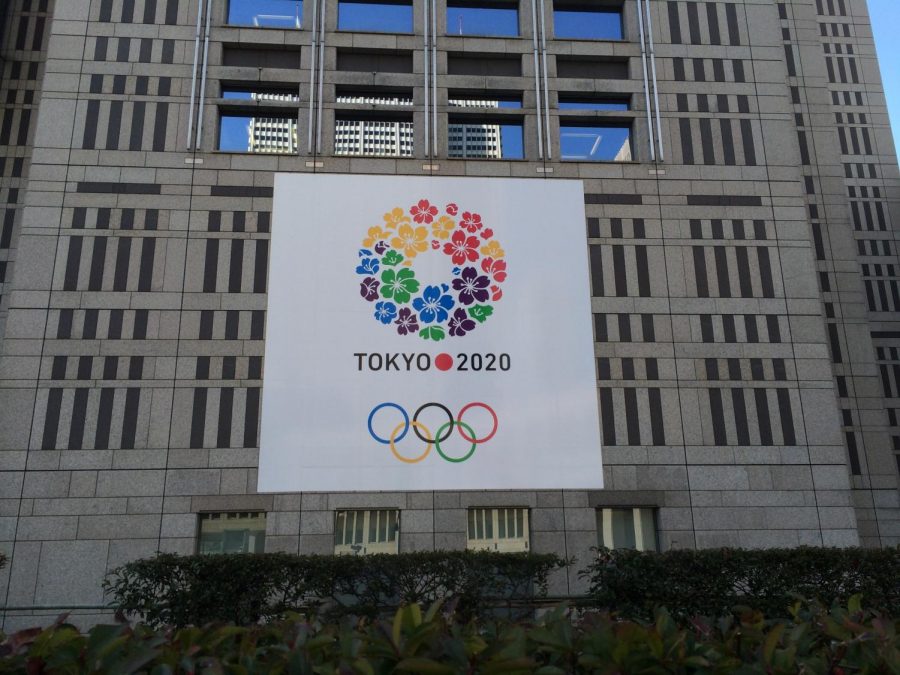Column: Double standards in sports are sexist and unhealthy
"Tokyo prepping for 2020 Olympics" by magerleagues is licensed under CC BY-SA 2.0
Athletes in the 2020 Olympics tackled double standards in sports.
September 1, 2021
It’s never easy for athletes to prepare for competitions. The grueling training they have to put in to perfect their craft demands the utmost dedication and focus. However, there are several systemic issues within sports.
For one, double standards exist between female and male athletes. My mother instilled in me the mentality that women can do anything that men can do, if not more. I carry this sentiment with me everywhere, especially when I was involved in various sports such as figure skating and softball. The one thing I noticed from my time as an athlete was the deliberate and obvious double standards in sports: how people put unfair expectations on females that are never applied to males and how the sports industry tends to prioritize physical health over mental health.
The sexism of sports was present in the 2020 Olympics as the Norwegian women’s beach handball team refused to wear the required bikini bottoms, instead opting for a pair of less revealing shorts. Instead of allowing the women to wear shorts similar to the men’s beach handball team, each player of the women’s team received a fine of approximately $175. In a sport where athletes are intensely moving, especially diving in the sand, it’s more than fair for women to wear uniforms that offer more coverage. The lack of uniform options for women that would properly accommodate such a sport is sexist on its own, but the addition of the fine made the situation worse.
Sexism in sports isn’t just limited to uniforms — it also impacts the pay of female athletes. As reported by the BBC, an Olympic gold medalist found out she was getting paid significantly less than a well-known male athlete. The two were paid by the same sponsor, but the female athlete was incredibly underpaid in comparison. This is not only degrading, but also wrongfully impacts her income. It’s well overdue for society to realize that women are equal to men and should be treated and paid as such.
Unfortunately, more types of double standards appear to be present in sports: athletes placing their physical health above their mental health. Simone Biles was set to compete in a number of gymnastic events at the 2020 Olympics but withdrew from many events she qualified for due to mental health concerns. Biles said she suffered from the “twisties” which made her mentally incapable of keeping track of her body’s position in midair. This is incredibly dangerous and can lead to physical injuries. After her decision to prioritize her mental well-being rather than risk a physical injury by continuing to compete, Biles received backlash. It was as if some people would’ve preferred that Biles risk her physical health for the sake of a medal.
One Serbian athlete opted to do just that. Novak Djokovic represented Serbia in tennis at the Olympics but chose to withdraw from the doubles match due to a left shoulder injury. Prior to withdrawing from the bronze medal mixed doubles match, he lost three matches and threw his racket into the stands during a match against Pablo Carreño Busta. These feelings aren’t purely competitive and perhaps are instead signs of built up physical and mental exhaustion.
“I just didn’t deliver yesterday and today. The level of tennis dropped. Also due to exhaustion — mentally and physically,” Djokovic said.
It’s unclear whether his physical injuries led to poor mental health or if poor mental health was to blame for awful physical health, but one thing is clear: He prioritized competing at first and suffered for it. Eventually, Djokovic made the right decision but only after getting hurt both mentally and physically. Biles made the right decision at the right time and was spared a potentially serious physical injury. In addition, she eventually competed and won a bronze medal in the balance beam finals.
While it’s easy to believe that physical health is more important for athletes, research shows that mental health is just as important. When someone is mentally struggling, they are more prone to certain diseases and are more likely to make bad and unhealthy choices. The human body can’t succeed without being both mentally and physically healthy. Fortunately, many are now beginning to realize that the two are equally important, despite the double standard currently seen in sports.
Athletic double standards are nothing new. Whether double standards are regarding gender or health — they’re damaging. As Northeastern athletes return to campus and begin a new season, the over 2,000 athletes should make it a priority to use NU’s mental and physical health services as well as make an effort to end sexism in sports by taking part in events hosted by The Feminist Student Organization.
Madison Boudreau Popovic is a second-year political science and business administration combined major with a minor in French and Opinion Editor of The News. She can be reached at [email protected].


















